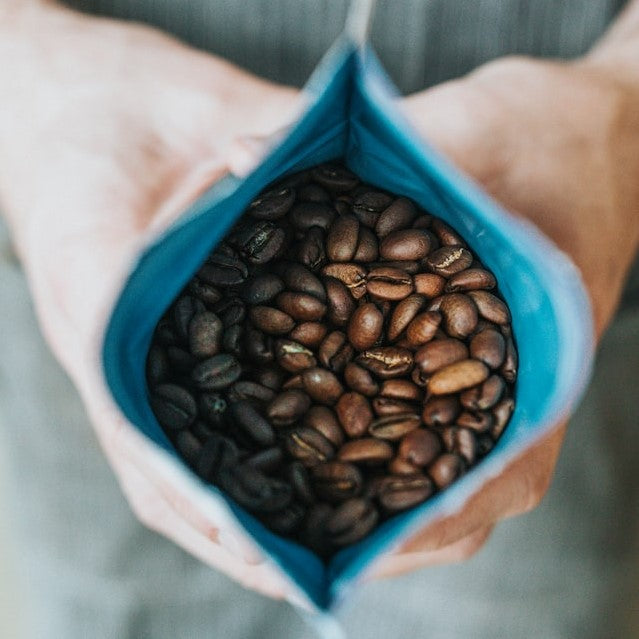
Artificial flavoring in coffee
Share
You’ve seen crazy coffee with flavors like “lemon pie”, “eggnog”, or even “leftover cold pizza”. The truth is, we are surrounded by all sorts of artificial flavors. But what are they, exactly?
According to the FDA, artificial flavorings are: “...any substance, the function of which is to impart flavor, which is not derived from a spice, fruit or fruit juice, vegetable or vegetable juice, edible yeast, herb, bark, bud, root, leaf or similar plant material, meat, fish, poultry, eggs, dairy products, or fermentation products thereof.”
That means, in summary, that artificial flavoring is not derived from things we can easily find in nature, but are created in a lab. Most commonly, one single artificial flavor can be a combination of many, many different chemicals. There are up to 1300 chemicals approved by the FDA for artificial flavoring!
Artificial Flavoring Facts
Now that we’ve cleared up what they are, let’s also take a look at some informative facts to dispel common misconceptions about artificial flavoring and get to know more about artificial flavoring.
#1 Vanilla flavoring comes from anal glands
This one is one of the most circulated facts regarding artificial flavoring, and it’s actually true! Castoreum is a secretion from beaver’s anal glands which was found to mimic the smell and taste of vanilla more than a hundred years ago.
It was used extensively on foods, perfumes, and so on. Thankfully, the practice of using Castoreum is almost extinct. With advances in science, it is much easier -and cheaper- to create vanilla flavoring in a lab than it is to use a beaver’s anal gland.
#2 It’s unhealthy for you
As with anything and everything, it all really depends on what exactly you’re doing with artificial flavoring. Moderation, of course, is key. If you’re eating snacks every day, chances are you’re consuming a little too much of one or another chemical used for flavoring.
While some of these chemicals can be toxic above a certain amount, most of the chemicals used for artificial flavoring are perfectly safe. They have to be safe, otherwise the FDA would not allow them to be used for food flavoring!
In the case of coffee, flavoring tends to be kept at a minimum so as to not overpower the natural taste and aroma of coffee. So you can rest assured flavored coffee is never bad for you!
#3 It causes rashes and/or acne
A widely accepted notion is that artificial flavoring, no matter which one, is the cause for many people’s skin conditions, from flaking to acne. The logic behind this is that since some of these substances are toxic, our bodies respond to it in this manner.
There is, however, no evidence to support this. While there are proved side effects of many of these chemicals, none of them have been found to cause any such skin-related symptoms.
So, yes, you can have artificial flavoring if you want. We have chosen to only use natural flavors in our seasonal flavors so you don't have to worry about it.
